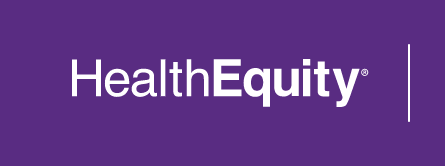Health savings accounts (HSAs) are one of the most effective options to save money for healthcare expenses and retirement, but many accountholders don't take advantage of all the benefits. Some of your employees may already have good HSA habits, but understanding more about how to use them can help make a good HSA program a great one. Here are 7 tips to help employees win with their HSA:
1. Contribute the annual maximum
By contributing the maximum amount each year, accountholders can take full advantage of the pre-tax benefits of their HSA. For 2018, the maximum annual HSA contribution limit is $3,450 for individuals and $6,900 for families. In 2019, those limits are $3,500 for individuals and $7,000 for families. Employees who are 55 or older can contribute an extra $1,000 each year.
2. Take advantage of employer-sponsored wellness programs
Many employers who offer HSAs to their employees also set up a wellness program. Employers can contribute money to the employees' HSA as part of these programs to encourage them to participate and improve their health.
3. Consider investing
One of the great advantages of an HSA is that accountholders can potentially grow their HSA funds tax-free1 through interest and through investing.2 Accountholders should consider the investment options their HSA provider offers and decide if investing is right for them.
4. Assign a beneficiary
As with other financial assets, it is a good idea for accountholders to designate a beneficiary of their HSA. If the beneficiary is a spouse, they can assume ownership of the account if the accountholder passes away. If the beneficiary is anyone other than a spouse, the HSA funds are given to the beneficiary, at which time those funds will be taxed.
5. Spend smartly
Unlike a flexible spending account (FSA) or other medical savings accounts, HSA funds do not expire at the end of the year. The funds roll over every year, so accountholders can potentially grow the funds in their HSA all the way to retirement. This means you don't have to spend your HSA dollars every year and you may want to pay for expenses out of pocket instead to protect your earning potential. You can always reimburse yourself for qualified medical expenses later on.
6. Only spend on qualified medical expenses
If an accountholder younger than 65 spends their HSA funds on anything other than qualified medical expenses, the purchase will be subject to taxes and an additional 20% tax penalty. After age 65, HSA funds can be used for any expense. The purchase will be taxed, but they will not be subject to the 20% tax penalty. Spending the HSA funds on qualified medical expenses is always tax-free.1
7. Plan for retirement
HSA funds do not expire, so accountholders can continue to save money all the way into retirement, and HSAs can cover things like Medicare premiums tax-free!1 An HSA paired with a 401(k) or other retirement vehicle can help prepare retirees for the expenses that come in their later years.
Conclusion
Understanding these 7 tips can help ensure that your employees get the most of the benefits that HSAs offer. Help your employees learn more about using their HSA effectively and provide them with education resources from HealthEquity today.
1 HSAs are never taxed at a federal income tax level when used appropriately for qualified medical expenses. Also, most states recognize HSA funds as tax-free with very few exceptions. Please consult a tax advisor regarding your state's specific rules.
2 Investments available to HSA holders are subject to risk, including the possible loss of the principal invested and are not FDIC insured or guaranteed by HealthEquity, Inc.
HealthEquity does not provide legal, tax, financial or medical advice.


